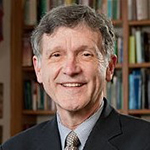By Bill Leonard
 “We the People of the United States, in Order to form a more perfect Union, establish justice, insure domestic Tranquility, provide for the common defense, promote the general Welfare, and secure the Blessings of Liberty to ourselves and our Posterity, do ordain and establish this Constitution for the United States of America” (1787). So the Preamble to the Constitution describes the purpose of this seminal American text.
“We the People of the United States, in Order to form a more perfect Union, establish justice, insure domestic Tranquility, provide for the common defense, promote the general Welfare, and secure the Blessings of Liberty to ourselves and our Posterity, do ordain and establish this Constitution for the United States of America” (1787). So the Preamble to the Constitution describes the purpose of this seminal American text.
Some 228 years later, that “more Perfect Union” remains beyond our grasp, especially if the last few months are any indication. Recent social-political-religious events illustrate that we are a long way from justice, domestic tranquility, common defense and the general Welfare. Indeed, as a nation we seem unable to agree on what the Blessings of Liberty might be, let alone how to “secure” them. Through social media, dramatic inequities play out right before our eyes.
Who can observe the continued replays of Walter Scott, shot in the back in South Charleston, S.C., or Freddie Gray dragged into a van in Baltimore, screaming for medical assistance, and not query the nature of American Justice? Who can watch the flames pouring from a Baltimore CVS or see row upon row of uniformed New York police present at the funerals of their fellow officers, and not recognize that justice and domestic tranquility continually collide?
And what of the common defense? Globally, the phrase evokes ceaseless military campaigns across the Middle East and elsewhere. At home it includes law enforcement agencies that promote, but sometimes undermine, the “general Welfare.” These days common defense also means firearms galore. The May 3 New York Times reported: “In Wisconsin, the Legislature is in the process of passing a bill that would eliminate the current two-day waiting period for a gun purchase — a repeal sought by the gun lobby, but opposed by citizens concerned that this will worsen the risk of impulsiveness among buyers intent on suicide or community mayhem. In Texas, lawmakers have approved open carrying of firearms in public. In North Carolina, lawmakers want to weaken penalties on gun owners who violate a ban on carrying guns into restaurants, and to punish doctors who ask patients about guns as a safety issue.”
And what of the First Amendment and religious liberty? In North Carolina, Stokes County Commissioners recently voted to engrave “In God We Trust” on their government buildings. In response, a “decorated Army veteran” suggested they cover all their libertarian bets by adding “In Reason We Trust” to the architecture. If anything, today’s Blessings of Liberty seem as tenuous as when the First Amendment was approved in 1791, and Thomas Paine the new nation’s resident “infidel.” Given the mood of their state legislature, perhaps North Carolina counties would be better served to etch “In Guns We Trust” on their facilities. Religious liberty (and idolatry) takes many forms.
A friend recently suggested that rather than opposing the Religious Freedom Restoration Acts (RFRA) pending, approved or amended in various legislatures to protect business folk who cannot in good conscience cater or provide other services at same-sex weddings, Christians of all hermeneutical stripes could bring their consciences to bear on all sorts of public events. Certain Christian “bakers and caterers” might refuse to facilitate occasions where the participants carry or even own firearms (Matthew 6:9); or eschew events for persons whose businesses refuse to pay a living wage (Amos 2:6). State magistrates might decline to preside at nuptials which involve divorced persons (Matthew 5:32), or couples thought to be “unequally yoked” (2 Cor. 6:14). Then, says he, we’d all be free to apply conscience and texts to all kinds of social and commercial endeavors, capitalism be damned. What a thought!
And what of conscience? In a masterful M.A. thesis submitted this spring at Boston College, my friend John Carter writes: “Reading [St.] Paul in the context of our current understanding of conscience of socially constructed values, conscience can be understood as where one’s deepest convictions of the truth are located in the dual contexts of one’s relationship with God and one’s relationship with the broader community. … But importantly, both for Paul and in contemporary thought, the process of articulating that truth through interrogating the conscience — or what the legal tradition evocatively refers to as ‘sifting the conscience’ — though it can be prompted or aided by others, must be done by each person herself.” At its best, the Constitution protects and unleashes conscience.
What might that wonderful phrase “sifting the conscience” mean in light of current constitutional struggles in church and state? American economic realities alone give us plenty to “sift.” In the May 3 Times Nicholas Kristof noted, “Just the annual bonuses for just the sliver of Americans who work just in finance just in New York City dwarfed the combined year-round earnings of all Americans earning the federal minimum wage.” In 2015, for many Americans general Welfare means something very different than it did in 1787.
In this less-than-perfect-Union, perhaps all our consciences need serious sifting, especially if there’s still a chance to “secure the Blessings of Liberty,” if not for ourselves, at least for “our posterity.” Here’s hoping.
